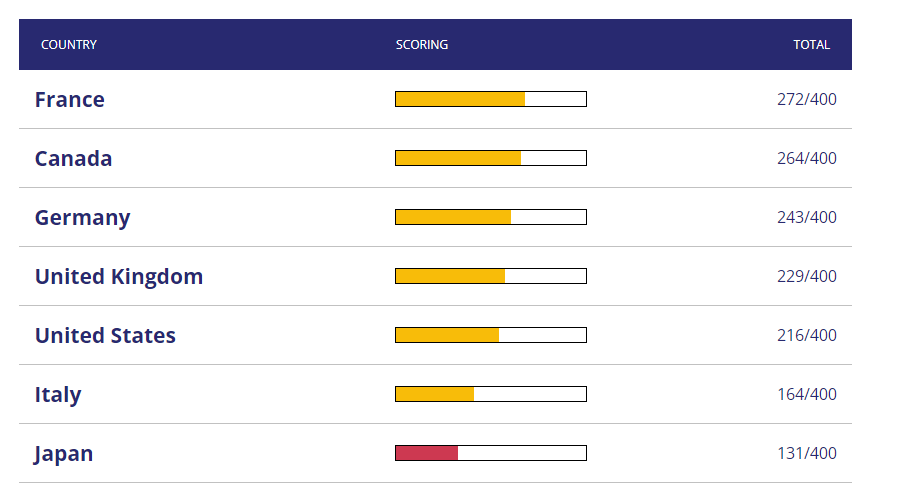
On May 31, E3G released its G7 Power Systems Scorecard for 2024, assessing G7 countries’ efforts to decarbonise their power systems. This new report notes that while the other G7 countries are making progress toward decarbonising their power sectors by 2035, Japan is the only one still sticking with fossil fuels. In particular, the report notes that Japan’s increased dependence on gas-fired power has resulted in a situation of supply risk.
Reliance on gas-fired power generation
Except for Japan, all G7 countries are either committed to phasing out coal by 2030, or, such as the cases of Germany and the US, are taking major steps towards an exit from coal. However, the report reveals wide gaps in national policies and goals for phasing out gas, especially unabated gas-fired power.
The reliance on gas-fired power generation in current and future power systems is concerning, as it assumes greater dependence on technologies that are commercially unavailable, such as carbon capture and storage (CCS) and hydrogen-ready (H2 ready) gas-fired plants. This can hinder the development of and support for non-thermal flexibility technologies.
Inadequate expansion of renewable energy
Although international targets for the expansion of renewable energy have been set, and each country prioritizes it in their national policies, expansion plans for renewable energy are not on the path needed to achieve net-zero power sectors by 2035. This goal is in jeopardy in most G7 countries, including in some countries that consider non-renewable energy as “low-carbon energy sources” (such as nuclear power generation in the US and Japan).
Analysis of Japan
With no phase-out plan for either coal- or gas-fired power generation and modest renewable energy expansion targets, Japan lags far behind the other G7 countries. This report illustrates that Japan’s energy transition strategy is notably different from the other G7 countries, focusing on promoting fossil fuel-based technologies such as ammonia/hydrogen co-firing, which risks hindering both domestic and regional decarbonisation efforts.
The report points out that continuous over-reliance on gas-fired power can pose a risk to the international image of the G7 countries as leaders in driving the transition toward a decarbonized society, as well as to the credibility of the international agreements on climate change. It summarizes that, in order to achieve the agreed-to goals, faster grid deployment, market mechanisms to facilitate renewable electricity and storage uptake, efficiency measures and higher electrification rates (buildings and transport in particular) must be put in place.
Download the report here:
E3G Press Release: Delivery of G7 net-zero power target at risk unless the group accelerates action
G7 Power Systems Scorecard (Report)
Written/Published: E3G
Published: May 31, 2024
